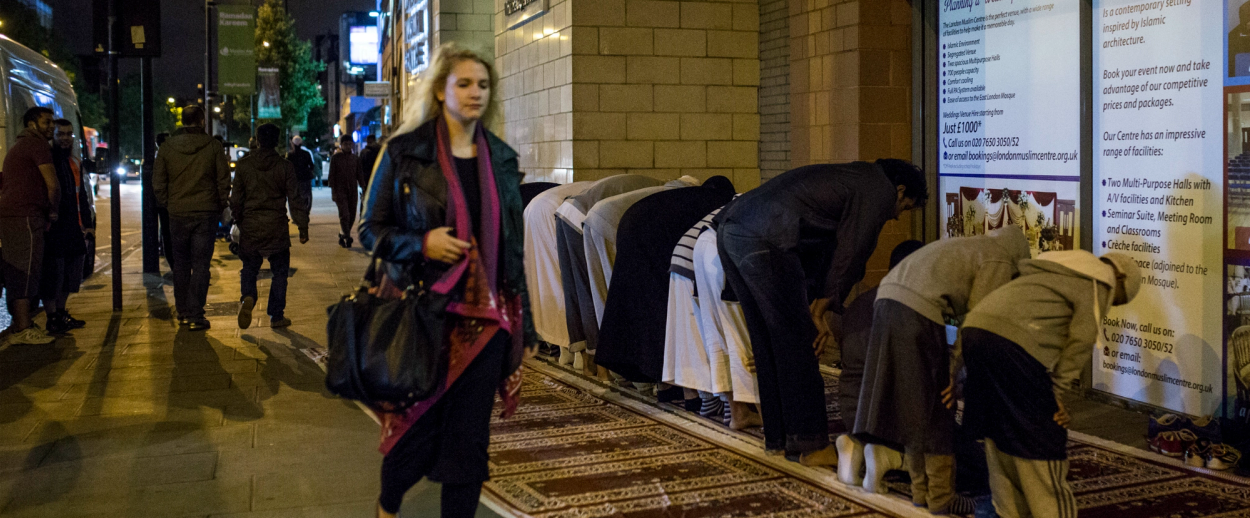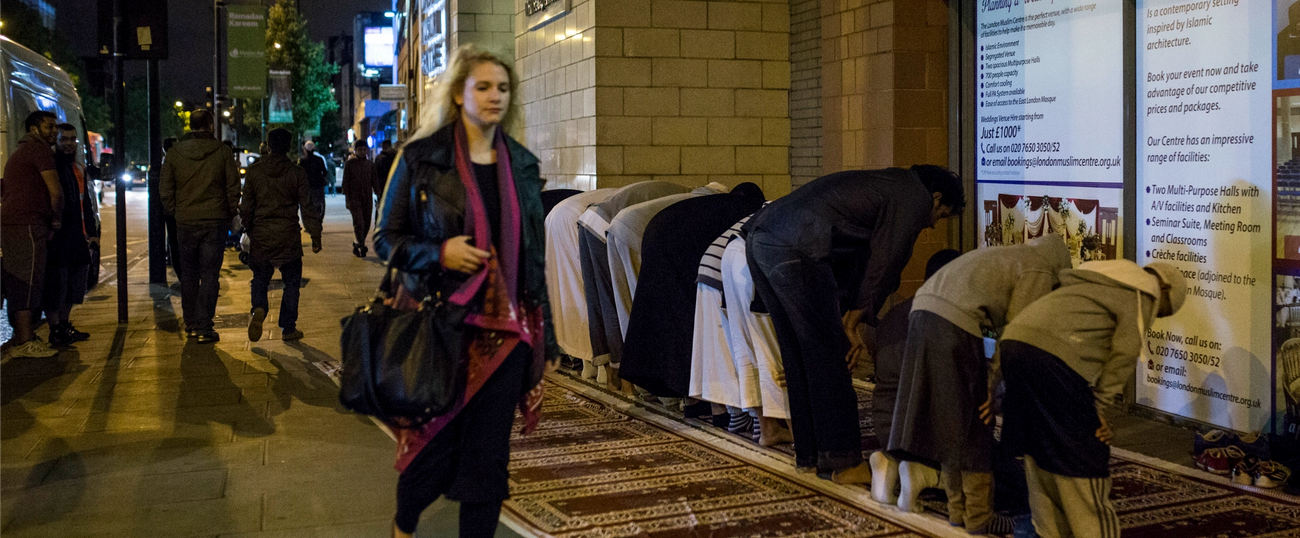Not the London I Know
An American visitor with an agenda fearmongers about London’s Muslims




“I wanted,” writes the journalist Andy Ngo in a recent Wall Street Journal column, “to cut past the polemics and experience London’s Muslim communities for myself.” To that end, Ngo visited London recently, the city I call home, “to see what it is really like for myself,” as he tweeted.
Ngo starts his account of visiting London by announcing that he is not interested in engaging in polemic but in establishing a more disinterested account of the city’s Muslim communities. This, however, is how he ends the piece: “Other tourists might remember London for Buckingham Palace, Piccadilly Circus, and Big Ben. I’ll remember it for its failed multiculturalism.” Between its opening and conclusion, Ngo’s account is constructed of foggy reasoning and hyperbole.
Of his first visit to Tower Hamlets, a borough in East London with a large Muslim population, Ngo writes: “As I walked down Whitechapel Road, the adhan, or call to prayer, echoed through the neighborhood. Muslims walked in one direction for jumu’ah, Friday prayer, while non-Muslims went the opposite way.” To ensure the reader understands how sinister this was and how un-British, Ngo relays how “each group kept its distance and avoided eye contact with the other. A sign was posted on a pole: ‘Alcohol restricted zone.’” The words a “sign was posted on a pole” are so vague as to invite readers to project their own pre-existing biases onto them; this is symptomatic of Ngo’s entire approach. Where exactly was the sign posted? To whom was it directed? If it was directed at Muslims in Muslim areas of worship then its presence might amount to a banality analogous to a sign of “pork restricted zone” near a synagogue.
If, however, the sign applied to the entire community, then it’s not working very well. Anyone who has stayed in Whitechapel for longer than it takes to confirm an ideological agenda knows the area isn’t exactly bereft of pubs. Cursory online research testifies to this. By clicking “Whitechapel Pubs” on Google maps I found at least 9 pubs between Aldgate East tube Station and Stepney Green Station, amounting to a walking distance of around 20 minutes. Saudi Arabia this is not.
On Twitter, the London-based economist Sam Bowman provided the most likely explanation for Ngo’s “alcohol free-zone” statement. It seems Ngo confused a sign applied by local councils throughout the U.K. that prohibits people from drinking alcohol in public areas like parks with the Islamification of Britain. In an e-mail to the Wall Street Journal, Bowman also notes that “alcohol-free zones” are also present in the US, including in Ngo’s home city of Portland. A subsequent correction to Ngo’s piece essentially confirms this. It now reads: “an earlier version mistakenly identified the public context of a sign that declared “Alcohol-restricted zone.” Such signs refer to a prohibition on public drinking and appear in many English neighborhoods, irrespective of Muslim population.” It is difficult to say with any certainty whether Ngo’s easily avoided error was the result of malice or ignorance. Ultimately the damage done is the same: to make people unfamiliar with London even more unfamiliar and those fearful of Islam even more fearful.
Ngo continues with this very same investigative myopia throughout his column. He describes, for instance, Leyton, another district of East London, as an area where “Muslim social norms prevail.” For such a statement you need more than an Arabic shop that is dominated by men or a shop that sells Hijabis to children, you must actually establish that the community is one in which Muslim social norms prevail. The evidence Ngo provides does not justify his claim. I have visited Leyton many times and from my experience, an overwhelming majority of commercial shops are those in which the sexes freely intermingle.
Ultimately, Ngo’s column is a problem of form as much as it is of content. A column of 800 words is not going to convincingly demonstrate that multiculturalism has failed in Britain even if the author was as concise as George Orwell. The issue is so complex and the implications so sensitive that it should be handled with care and devotion. What we have instead is a breezily assembled collection of vignettes that would only positively animate those predisposed to view Islam as an omnipotent force for evil in the West.
One of the main things Ngo has emphasized throughout a lot of his writings, and something with which I heartily agree, is that far too many people on the progressive left engage in aggressive hyperbole rather than nuanced discussions on sensitive issues. He must now extend this observation to himself.
Tom Owolade is a student and blogger based in London, United Kingdom. He is about to start a postgraduate degree in English Literature at University College London. He is interested in British and American cultural debates about identity, early 20th-century fiction and history, and Arsenal F.C.